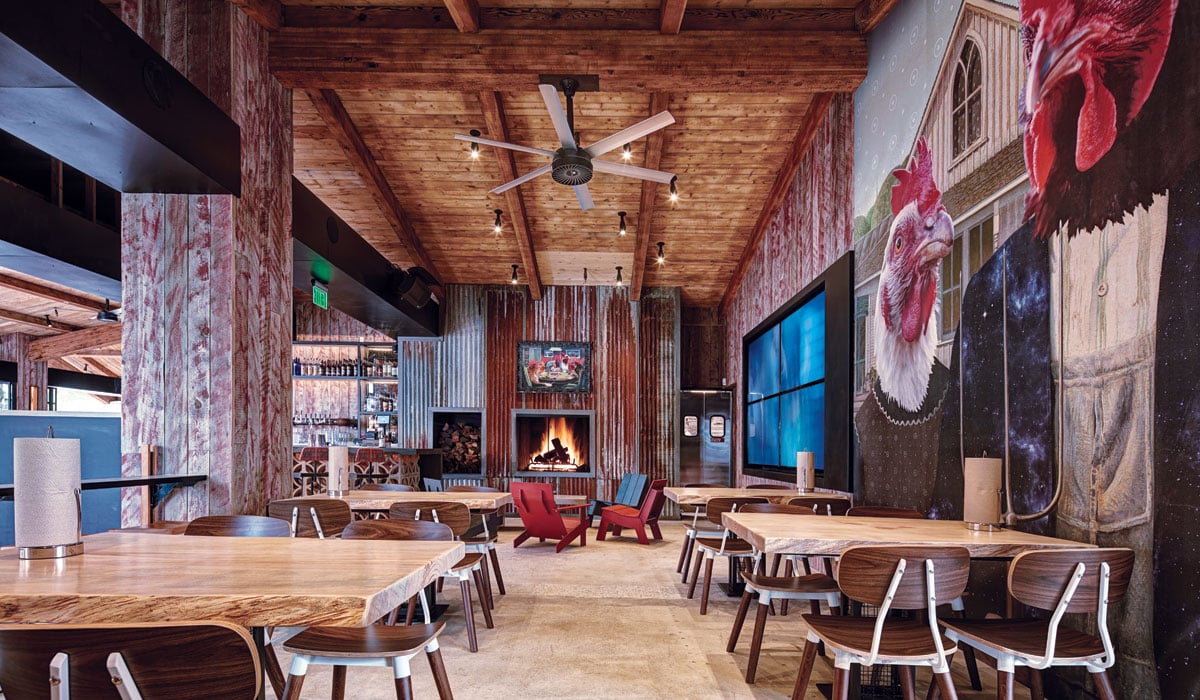There’s no denying that the pandemic is nearly behind us and that a boom is on the way for the restaurant industry. And as the economy improves, experts expect a flood of venture capital, private equity, and other investments to come pouring into restaurants, particularly after many parked their cash on the sidelines to ride out the uncertainty of 2020.
The way Aaron Allen sees it, the restaurant industry today is like a buoy out to sea, swaying from the flurry of activity just below the surface. “The tsunami is on the way,” he says. “We’re anticipating this pent-up demand is going to unleash a flood of capital into markets.” Allen, CEO of restaurant consulting firm Aaron Allen & Associates, adds that there are “billions and billions” of dollars raised pre-pandemic that are just waiting to be invested.
As ever, there is a class of investors scavenging for distressed assets. But Allen says those brands that excelled through the pandemic—whether they improved their off-premises game or dug deep into the digital side of the business—are best primed to reap rewards now.
To be an attractive target for investors, Allen says operators need to connect with the right specialized advisers, attorneys, and CPAs that have experience in the space. Even the most attractive companies shouldn’t be in any hurry—the financial due diligence alone can last months, he says.
He expects the pandemic to shutter as many as one-fifth of all U.S. restaurants. Some of those will be permanent losses as the industry’s footprint shrinks. But many others represent new opportunities for operators and investors alike. “The new concepts being born now will get so much capital thrown at them, they will be able to grow so quickly,” Allen says. “Unfortunately, it’s like a forest fire. For a healthy forest, you need a fire to come through every so often and clear all the underbrush.”
What can operators do to be best positioned for a capital boom? To a large degree, their fate may already be determined by how they fared last year, says Andrew Smith, managing director of private-equity firm Savory Fund.
“There’s plenty of capital out there for those that won,” he says. That includes drive-thru concepts, fast-casual brands, and those that mastered digital transactions. “You’re going to get investment not only from banks, but also venture capital,” he says.
In contrast, those operations that barely survived the pandemic won’t be in high demand now, he says. And brands that retreated last year can’t afford any more hesitancy. “It’s very difficult for you if you didn’t pivot during COVID and prove you’re a winner,” Smith says. “This was the opportunity for you to galvanize as a company and prove your worth.”
Savory Fund generally targets restaurants with five to 10 locations. The fund and its Savory Management team look to bring both their cash and industry experience to help grow micro regional brands into chains that span multiple states. Smith got his start in the industry in the years following the Great Recession, and he sees a parallel in the pandemic recovery. Only this time, restaurants that survived will likely see an influx of traffic as diners look to make up for a year of isolation.
“Where there’s disruption, there’s always opportunity,” he says. “They called them the ‘Roaring ’20s’ after the Spanish Flu. This is going to be the Roaring ’20s for restaurants, absolutely.”
It’s not just private investment firms flooding the restaurant space with money. So are SPACs—special acquisition companies that raise money through an IPO with plans of merging with another company and taking it public.
Tastemaker Acquisition Corp. is just one SPAC to launch with intentions of investing in the restaurant industry. Early this year, Bartaco cofounder Andy Pforzheimer and Red Robin chairman Dave Pace took Tastemaker public, raising $240 million after an initial goal of $200 million. Tastemaker aims to capitalize on a changing marketplace and identify winners of the pandemic, Pforzheimer says.
Investors are still trying to decipher what 2020 trends will bear out over the long run. But Pforzheimer says operators that reinvented their business models or found creative ways to meet customer needs and address health and safety concerns have risen to the top. Of course, investors want to see solid unit economics as well. “I know that sounds incredibly basic, but you would be shocked,” Pforzheimer says, adding that operators shouldn’t get too hung up on 2020 numbers, as sales numbers from 2017, 2018, and 2019 will be more relevant.
Tastemaker is eying companies with strong management and a track record of growth—just like everyone else. “The thing that I’m seeing is that, not surprisingly, the best companies are in high demand and have options, which is always true,” Pace says.
David Portalatin, foodservice analyst at The NPD Group, believes quick-service chains are primed for more expansion than fast-casual outfits, which had already seen a leveling off of their once-aggressive growth rates before the pandemic.
He expects investors to increasingly look for concepts exploring the future of the industry. That might mean those with the best technology, or quick serves that rethink the dine-in portion of their business and move to drive-thru-only models, or maybe even full-service establishments that begin designing smaller dining rooms but expand off-premises orders.
No matter the operation, Portalatin expects one thing to remain constant in a post-pandemic world. “The restaurant industry has first and foremost always been about the food,” he says. “That’s true during a recession, during a boom time, during a pandemic. That’s one of the transcendent truths: It will always be about the food.”












